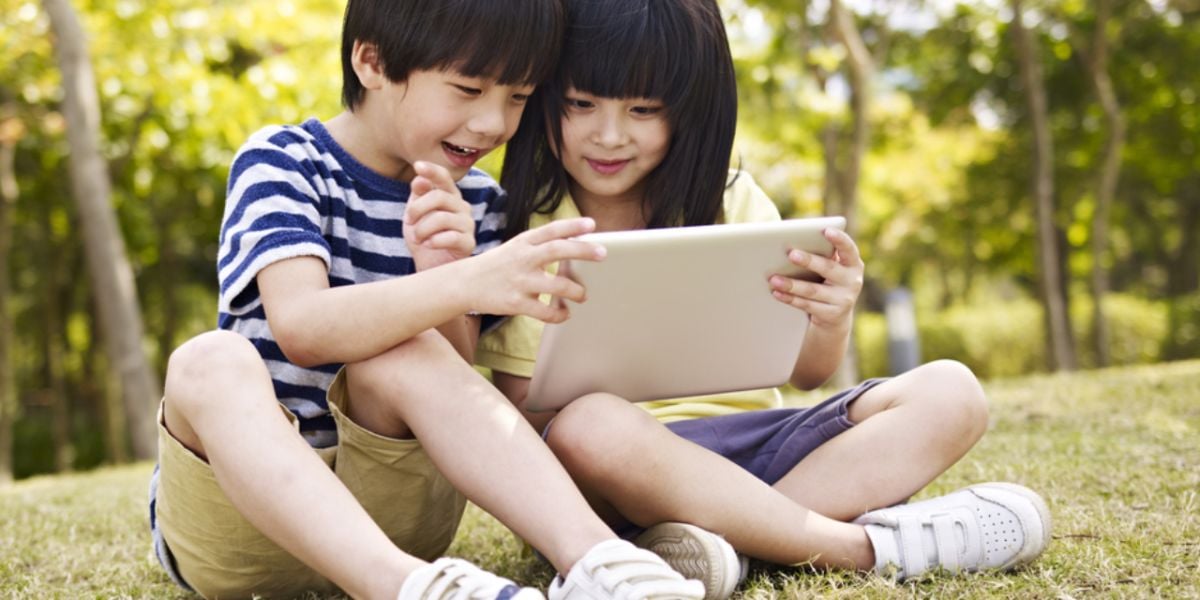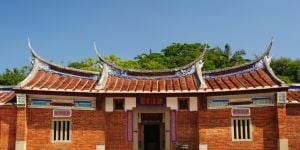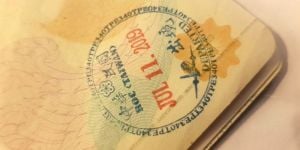
When you find yourself raising a family as an expatriate in a foreign country like Taiwan, navigating the intricacies of childcare can present unique challenges. Fortunately, Taiwan is renowned for its family-friendly environment and robust support systems, making it an ideal destination for expat parents seeking quality childcare services.
Foreign residents in Taiwan
Spouses and dependent children can be included on a resident permit application in Taiwan, although your national health insurance contribution from payroll will be higher for each dependent member of the family. All residents must be enrolled in the Taiwanese healthcare system, and it is your responsibility to pay for their coverage through your payroll taxes.
Family-friendly Taiwan
There are many family-friendly activities around Taiwan, including expat groups and organizations. There are a few foreigner-friendly religious organizations scattered around the cities, with the majority based in Taipei.
Taiwan offers many family-friendly activities throughout the year with festivals and events. Local theaters have regular performances for children, and some of them are in English. On Children's Day, most museums are free to encourage families to bring their children. In addition, every city and district has public parks and playgrounds for children and families to enjoy.
Overall, Taiwan is safe, and it is common to see children riding public transportation without their parents. Whether you want to allow your children to do so is up to you.
Children's Day in Taiwan
Children's Day is celebrated in Taiwan on April 4, in conjunction with Women's Day, and is a national holiday. Children's Day also falls within the Tomb Sweeping Festival holidays, which grant people a day off anyway.
On April 4th, children under the age of 12 are granted free entry to family-friendly attractions around the country, including many of Taiwan's zoos, such as the popular Taipei Zoo. These attractions, along with amusement parks, are packed on April 4th, with long lines and long waiting times for attractions, exhibits, and rides.
International and religious schools in Taiwan
There are numerous international and private schools throughout Taiwan for kindergarten through high school students.
The most prestigious institution in the country catering to the children of expatriates is Taipei American School. The sprawling campus, located in the expat enclave of Tianmu, formerly home to the bulk of the U.S. military presence in Taiwan, is modern and constantly undergoing improvements owing to the large donations that pour in from wealthy former students and the parents of current attendees each year. In recent years, for example, a robotics wing was added wherein students can hone their engineering and programming skills for the modern age.
At institutions such as Taipei American schools, students need not necessarily prepare for the local university entrance examination and can instead prep for overseas entrance tests such as the American SATs or any of the various admissions tests used to determine enrollment in post-secondary schools in the U.K. The advantage of attending a school such as Taipei American School or the nearby Taipei European School is the access it grants to a wide network of successful former attendees who have gone on to success in various fields. This can be useful for getting internships in Taiwan or letters of recommendation, for instance. This, however, comes at a price, with tuition for a single semester at Taipei American School rivaling the cost of an entire year of education, or even an entire degree program, at an average overseas university. In some instances, an expatriate's company will include in their compensation package the cost of tuition at Taipei American School or another international school.
In addition to the international schools that operate on other countries' education standards, there are some religious schools. Other international and religiously affiliated schools include Taipei American School, Taipei Japanese School, American School in Taichung, Morrison Academy (Taichung), Kaohsiung American School, Dominican International School Kaohsiung, and more.
The testing system in Taiwanese schools
Some expat parents, rather than enrolling their kids in international schools, which are very expensive, choose to immerse their children in a local school instead. There are options that include Mandarin-only environments (with the exception of English classes) or the handful of elementary, junior high, and high schools which market themselves as “international models,” focusing at least in part on English-language instruction.
In any case, if one is going to enroll their children in a local school, it helps to know the differences between the school system in Taiwan and many of those abroad. In Taiwan, the focus is largely on rote learning, preparing students for the national examinations determining their placement in the country's ranked high schools and universities. Preparation for these exams is a months-long process that can be very time consuming and stressful for all involved.
Often, students who are preparing to take these exams will spend all day in school, then head to a cram school specializing in test prep for the national exam, often returning home in the evening for yet more homework and test preparation. This system has its critics, and in 2020 changes to the education system were announced, allowing students to focus more on their individual passions, talents, and aptitudes. However, this new system has faced challenges in its adaptation phase, as many teachers used to the old system have resisted implementing the new one.
Much of junior high (grades 7 through 9) is spent in preparation for the national high school entrance examination, which covers literature, mathematics, English, Science, social studies, home economics, art, and physical education. The student's score will determine their high school placement. Nearly 95 percent of junior high students in Taiwan go on to either high school or vocational school, where they may learn a trade.
The overall environment in Taiwanese schools
The local education system in Taiwan is highly disciplined. Teachers occupy a revered position in local society, where education is still, in part, steeped in Confucian ideals of respect for one's elders and superiors. Questioning a teacher, talking back to one's instructor, or in general, treating a teacher with anything less than the highest respect is highly frowned upon.
As such, students' lives in Taiwan are quite strictly regimented. There is still a position at each school, a holdover from the days of Martial Law in Taiwan, which used to be occupied by an actual military officer—a man or woman who is in charge of disciplinary matters, making sure students are on time for class, taking precautions against truancy, and so on. Today, this job is, at times, rotated amongst the students themselves.
The cleaning and upkeep of the school are also assigned to the students themselves, who spend a portion of each week cleaning the entire school grounds, doing everything from scrubbing bathrooms to groundskeeping duties. This is done to instill a sense of respect for the space in which they learn and for the learning process itself. This practice will later extend to university life as well, and sometimes even into their working days, depending on the practices of the company in which they will find employment.
For many decades, corporal punishment was the norm in Taiwan's schools. Students who misbehaved, or performed badly on exams, were subjected to strikes on the hands with implements such as a ruler. Today, such practices are outlawed, but cases still emerge from time to time.
Pre-school and kindergarten in Taiwan
There are public and private preschools and kindergartens in Taiwan. The public system, which is much cheaper than the private, has limited space, and enrollment is determined by a lottery system. If a family has two preschool or kindergarten-aged children, and one gets into the public system via the lottery, the second child is automatically accepted.
As Taiwan, which is a rapidly aging society, and set to become a Super Aged Society, trends downward in the number of preschool and kindergarten-aged students, it may come to pass that the competition for space in the nation's preschools and kindergartens will be less intense.
Special education in Taiwan's schools
Only certain schools in Taiwan can accept students with special needs and have staff with training to handle students with mental and/or physical disabilities. There are free shuttle services for these students both to and from school, and if those services cannot, for whatever reason, be utilized, there are transportation subsidies available. Students with disabilities who are highly functional are often funneled towards the vocational system so that they might learn a useful trade in the hope of gaining employment once their school days are finished.
Good to know:
At this time, subsidies are not available for foreign residents of Taiwan who have children with special needs.
Afterschool activities in Taiwan
Afterschool activities, including cram schools for various subjects, are open to all residents in Taiwan.
Cram schools are popular, especially for Taiwanese students to learn English. However, not all cram schools are the same. If you plan to send your children to one for some additional subject help, try to ask for recommendations and talk with the staff at the school. Most international schools will have sports activities for students. However, there are many more options around for sports. There are some organized sports leagues for kids, but they are usually conducted in Mandarin.
Taiwan has many community sports and fitness centers that offer swimming pools, gym equipment, and other sports. You don't even need to present an ID to use the facilities, but you will be charged for the time you use them. The price is quite affordable. In some areas, there are additional parks and recreation spaces with basketball and tennis courts for public use.
Expat communities in Taiwan
There are numerous expat communities in Taiwan to get involved with. Every religious group and country has its own group that organizes activities. Larger organizations, such as the Chambers of Commerce for each country, will organize activities throughout the year. Some of those activities are family-friendly, like the Canada Day celebration in Taipei.
The government-sponsored organizations, as well as most religious groups, are located in Taipei, Kaohsiung, and Taichung. If you plan to partake in regular meetings, you need to schedule everything.
For smaller expat meetings, there's Meetup.com. It has many groups throughout Taiwan for all interests. There will be family-oriented groups as well as activity-based ones. Be aware that some groups can be flaky and not actually show up, and some groups are also poorly organized. Longer-term expats will know which groups on the site are better for meeting people.
We do our best to provide accurate and up to date information. However, if you have noticed any inaccuracies in this article, please let us know in the comments section below.








